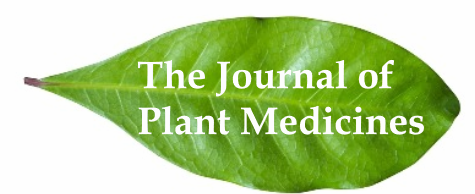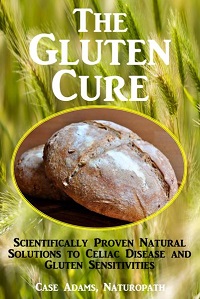Birch Bark: Cervical and Skin Cancer
Medical Researchers have confirmed that an extract of birch tree bark stops the growth of cervical and skin cancer cells.
In this article
Birch tree bark studied
This latest study comes from Romania’s Victor Babes University of Medicine and Pharmacy.
The finding confirms previous research done by Romanian and Polish medical researchers that have all found that Betulin, an extract from the bark of the birch tree, stops the proliferation of certain cancerous cells into tumors.
The researchers tested the Betulin derivative betulinic acid against three types of human cancer cells in the laboratory. These included cervical cancer cells (HeLa cells), breast cancer cells (MCF7 cells) and skin cancer cells (epidermoid carcinoma A431 cells).
An MTT assay and the fluorescence double staining analysis were conducted on the cells after treatment with the birch extract. The MTT assay measures the activity of cellular enzymes, which stimulate circulatory activity among cells.
This study found that the birch tree extract blocked the ability of the cancerous cells from creating circulatory systems, which enable them to expand and become tumors.
This process of creating circulatory systems – typically through capillaries – is called angiogenesis: The creation of blood vessels among groups of cancer cells.
This study found the birch bark extract was especially effective amongst the cervical cancer cells and the skin cancer cells.
The researchers found, that “Betulin induced the reduction of newly formed capillaries, especially in the mesenchyme.” The fact that the extract works in the mesenchyme is important because the mesenchyme are regions where cells develop into more specialized cells. To inhibit cancer growth among these regions is powerful because many cancers form from this region, as the unspecialized cells metastasize to specialized tumor regions.
Previous research also found birch tree blocks cancer
This finding is critical in the comprehensive understanding of the ability of birch tree bark to stop cancer growth. At least three previous studies have established that the birch tree bark extract also stimulates the kill switch among cancer cells – also called apoptotic cell death.
One of the ways that cancer cells avoid the immune system is that they produce genetic changes that block the cells’ normal kill-switch, which can be triggered by the immune system when the immune system senses that a cell has mutated. Two previous studies – one from May of 2012 and another from 2006 from Poland’s Curie-Sklodowska University – confirmed that Betulin was able to undo this genetic block, allowing cancer cells to be killed.
The earlier 2012 research found that Betulin was more powerful than its derivative, betulinic acid in promoting cell death among the cancer cells.
What is Betulin
Betulin is classified as a pentacyclic triterpene. Birch bark contains a significant amount, as does the bark of the red alder (Alnus rubra) tree. Native American Indians used the bark of the red alder tree to treat a variety of inflammatory conditions, including poison oak and other inflammatory skin conditions, as well as tuberculosis.
Traditionally, the a tar or resin from the bark was prepared, and applied directly onto the skin. The researchers utilized extracts that were up to 50% Bertulin content, from a raw extract of 3%.
Other plants also contain Betulin. The Malaysian plant Phyllanthus watsonii also contains Betulin, and in June of 2012, Malaysian researchers tested the extract of this plant against colon cancer cells and cervical cancer cells.
Like the Romanian and Polish researchers, the Malaysian researchers found that the Betulin-containing plant induced the death of colon cancer and cervical cancer cells.
Euphorbia herb also fights cancers.

Learn the benefits of the sun and how to help prevent skin cancer while supporting this ad-free website.
REFERENCES:
Dehelean CA, Feflea S, Molnár J, Zupko I, Soica C. Betulin as an antitumor agent tested in vitro on A431, HeLa and MCF7, and as an angiogenic inhibitor in vivo in the CAM assay. Nat Prod Commun. 2012 Aug;7(8):981-5.
Soica CM, Dehelean CA, Peev C, Aluas M, Zupkó I, Kása P Jr, Alexa E. Physico-chemical comparison of betulinic acid, betulin and birch bark extract and in vitro investigation of their cytotoxic effects towards skin epidermoid carcinoma (A431), breast carcinoma (MCF7) and cervix adenocarcinoma (HeLa) cell lines. Nat Prod Res. 2012;26(10):968-74.
Rzeski W, Stepulak A, Szymański M, Juszczak M, Grabarska A, Sifringer M, Kaczor J, Kandefer-Szerszeń M. Betulin elicits anti-cancer effects in tumour primary cultures and cell lines in vitro. Basic Clin Pharmacol Toxicol. 2009 Dec;105(6):425-32.
Rzeski W, Stepulak A, Szymański M, Sifringer M, Kaczor J, Wejksza K, Zdzisińska B, Kandefer-Szerszeń M. Betulinic acid decreases expression of bcl-2 and cyclin D1, inhibits proliferation, migration and induces apoptosis in cancer cells. Naunyn Schmiedebergs Arch Pharmacol. 2006 Oct;374(1):11-20.






























